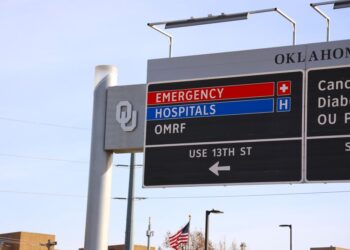OKLAHOMA CITY (OBV) – A bill that gives Oklahoma inmates the opportunity to obtain a driver’s license before their release from prison will help grow Oklahoma’s workforce, according to the legislator who wrote the bill.

Rep. Brian Hill, R-Mustang, wrote House Bill 2364. The bill requires the Oklahoma Department of Corrections (DOC) help inmates who are leaving state custody obtain a noncompliant REAL ID driver license. DOC officials are also required to help inmates obtain a REAL ID Noncompliant Identification Card if the inmate does not or cannot obtain a driver’s license.
The bill ultimately benefits Oklahoma’s workforce.
“When inmates leave prison fully prepared to enter the workforce and gain housing, our whole state benefits,” Hill said. “The likelihood they’ll return to prison is significantly lessened because they reenter society with the tools and support they need to make it happen. House Bill 2364 would help American citizens leave Oklahoma prisons with a state driver’s license, which will help them access work, housing, grocery stores and other services, and gives them a state ID to be used in securing a job. This not only reduces recidivism but also strengthens Oklahoma’s restorative workforce by helping more people become productive, contributing members of society.”
The bill is an update to the Sarah Stitt Act, which Hill wrote in 2021.
The Sarah Stitt Act works to reduce Oklahoma’s recidivism rate and boost the state’s economy by providing documentation and employment services to individuals leaving incarceration.
That law – named in recognition of Oklahoma First Lady Sarah Stitt’s work to reduce recidivism – also requires the DOC to provide inmates with copies of their degrees and certificates, work record, birth certificate, as well as a Social Security card, a resume and documentation that the inmate completed a practice job interview.
HB 2364 has been succeeding so far in the legislature. It unanimously passed the House of Representatives’ House Public Safety Committee with a 5-0 vote on Wednesday.
It must be heard by the House Judiciary and Public Safety Oversight Committee before it can proceed to the House floor.

















